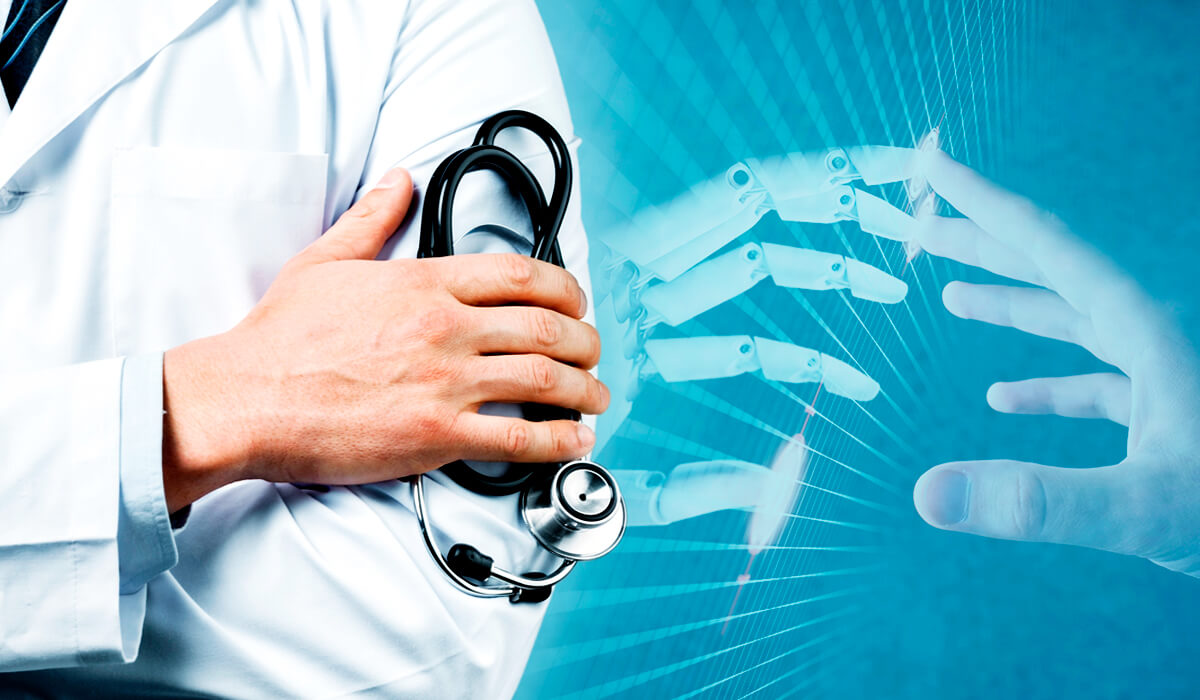Bumrungrad International Hospital to pilot AI for pathogen and drug resistance detection
20 October 2018 Uncategorized
Bumrungrad International Hospital moves forward to med-tech 4.0–partnering with Biotia, an American health tech company to pilot artificial intelligence (AI), sequencing-based technology to revolutionize pathogen and drug resistance detection
Associate Professor Dr. Somsak Chaovisitsaree, Bumrungrad International CEO and Medical Director, reveals that Bumrungrad International Hospital and Biotia have partnered to develop AI and health-related technology to analyze, diagnose, and treat cases involving drug-resistant pathogens. The two partners are determined to help patients by developing medical technology and are moving forward to sequence-based pathogen detection; starting with 1,000 samples, which will be collected, analyzed, and stored in the database at Bumrungrad International Hospital Clinical Laboratories. A press conference is scheduled today announcing the partnership.
Next-generation sequencing (NGS) technology and microbial identification software were developed to accurately identify the type and characteristics of microorganisms. The technologies have been applied to diagnose infectious diseases, determine prognoses, screen potential pathogens, and decrease the risk of hospital acquired infections, which can be as high as 1 in 25 patients (Centers for Disease Control and Prevention (CDC) and Healthcare Associated Infection (HAI), 2018).
Annually over 700,000 people worldwide die because of drug resistant pathogens. By 2050 this figure could increase to as much as 10 million, with most deaths occurring in Asia(4.7 million)and Africa(4.2 million).The economic impact of this future is measured in trillions of Thai Baht. The World Health Organization (WHO) calls this future the “post-antibiotic era,”where a single infection can lead to immediate death. Further, it threatens the collapse of modern medicine because surgeries and aggressive treatments would be too dangerous to be carried out. Live saving treatments like organ transplants and chemotherapy would no longer be possible because they rely on antibiotics for their success. Therefore, The Royal Thai Ministry of Health views antibiotic resistance as an urgent medical issue (Situations of Antibiotic Resistance in Thailand, 2018).
In Thailand, it is estimated there are 87,751 cases of antibiotic resistance each year, resulting in 38,481 patient deaths, and accounting for 40% of all of patient deaths. They also require 3.24million patient-days in hospital. Annual spending on antimicrobials usually lies between 2.539– 6.084 billion Baht and the economic impact of drug resistance is approximately 40 billion Baht.
Antimicrobial resistance is increasingly a threat globally. The WHO has called for urgent initiatives to address the situation, including the use of innovative approaches to identify organisms and their antibiotic resistance characteristics more rapidly. Early detection can help physicians to provide more efficient treatment and prevent further resistance to available treatment.
The pathogenic culture method for testing antibiotic resistance has been used since the 19thCentury. While useful, this method is time-consuming, labor-intensive, often resulting in delayed categorization of microbial resistance levels and can even result in even mis-categorization.
They will present an advancement in real-time organism identification using portable sequencers on-site and the Biotia AI pathogen identification software. This breakthrough has two key advantages:1) Decreasing the time needed to in identify pathogens, antimicrobial resistance markers, and virulence factors –from days or weeks to only hours; and 2) increased accuracy in preventing and controlling infections. The technology is a major step towards the adoption of sequencing technology for infectious disease diagnoses. Bumrungrad is one of the leading hospitals adopting this new technology to manage antimicrobial resistance.
“Bumrungrad International Hospital is a recognized leader in patient focused care and is committed to the adoption of innovative technology to ensure our patients receive the highest standard of appropriate care. Our collaboration with Biotia reflects this commitment. By utilizing this technology, Bumrungrad will confidently be able to offer the best treatments for infectious diseases–improving patient outcomes, while minimizing the risk of developing further antimicrobial resistance,” Assoc. Prof. Dr. Somsak Chaovisitsaree said.
Co-Founder and CEO of Biotia, Dr. Niamh O’Hara reveals that Biotia has developed a kit which can identify pathogens, antimicrobial resistance, and virulence markers more rapidly and accurately than most commonly used techniques. In the long run, Biotia, together with Bumrungrad International Hospital, will:1) implement its pathogen detection solutions through optimized laboratory techniques, advanced sequencing technology created by Oxford Nanopore, Biotia AI software, ChelseaTM; and 2) create a database, with a subset of samples being validated by culture, PCR, and Illumina sequencing.

